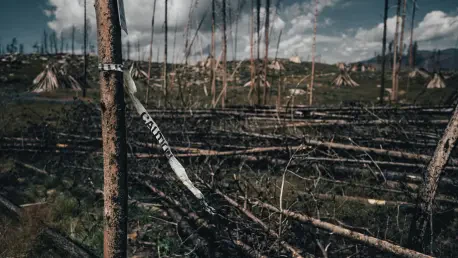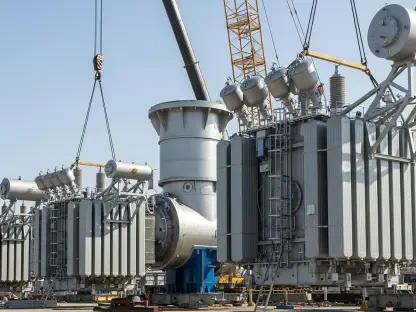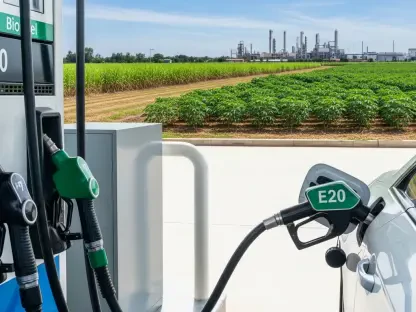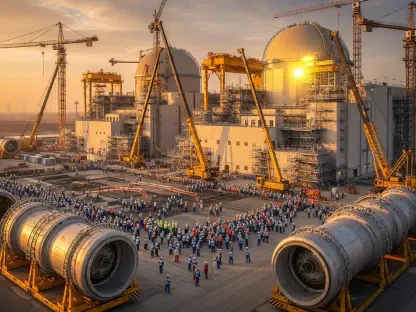The Amazon rainforest, often called the “lungs of the Earth,” faces unprecedented challenges from infrastructure projects that could irreversibly alter its ecosystem, and with deforestation rates continuing to climb, the stakes for global climate stability and Indigenous livelihoods have never been higher. At the heart of this crisis stands Raoni Metuktire, a 93-year-old Kayapo chief, whose urgent pleas at the UN Climate Change Conference (COP30) in Belem, Brazil, on November 11, 2025, have reignited global debate. This roundup gathers insights from environmentalists, policy experts, Indigenous advocates, and industry voices to explore the multifaceted threats to the Amazon and the varied solutions proposed to safeguard its future.
Voices from the Ground: Indigenous Perspectives on Amazon Protection
Raoni Metuktire’s address at COP30 underscored a dire warning: Brazilian infrastructure initiatives, including highway paving and oil exploration, threaten not just the rainforest but humanity’s shared future. His call for legal demarcation of Indigenous lands as a protective measure resonates deeply with many native leaders. Their collective stance emphasizes that formal recognition of territories is not merely a legal issue but a critical step toward preserving biodiversity and cultural heritage.
Other Indigenous advocates echo this sentiment, highlighting how their traditional knowledge offers sustainable models for forest management. Many argue that involving native communities in decision-making processes ensures conservation efforts align with local realities. This perspective often contrasts with top-down governmental approaches, revealing a gap between policy intentions and on-the-ground needs that must be bridged for effective action.
A recurring theme among these voices is frustration over decades of ignored warnings. Leaders point out that destruction has persisted despite repeated calls for restraint, urging global audiences to recognize the Amazon’s collapse as a universal loss. Their narratives stress a profound connection to the land, positioning Indigenous stewardship as a cornerstone of any viable long-term strategy for the rainforest’s survival.
Environmental Experts Weigh In: The Science Behind the Threats
Environmental scientists and conservationists provide a data-driven lens on the Amazon’s plight, focusing on specific projects like river blasting for shipping and offshore oil exploration near the Amazon River’s mouth. Many caution that such activities disrupt vital ecosystems, accelerating deforestation and carbon emissions. Their analyses often highlight how the rainforest’s role as a global carbon sink is jeopardized by short-term economic pursuits.
Differing opinions emerge on the feasibility of balancing development with preservation. Some researchers advocate for innovative technologies to minimize ecological footprints, suggesting that infrastructure could be designed with stricter environmental safeguards. Others remain skeptical, arguing that the scale of proposed projects inherently conflicts with conservation goals, regardless of mitigation efforts.
A broader concern among these experts is the cascading impact on global climate patterns. They warn that continued degradation could tip the Amazon into a savanna state, with consequences for weather systems worldwide. This scientific consensus aligns with Indigenous warnings, reinforcing the urgency of rethinking development priorities in favor of sustainable alternatives over the coming years.
Policy and Government: A Contested Arena of Action
Policy analysts and governmental observers offer a spectrum of views on Brazil’s approach under President Luiz Inacio Lula da Silva’s administration. While some commend initial steps to demarcate Indigenous lands, others criticize the persistence of controversial projects as evidence of inconsistent commitment. This tension between rhetoric and action remains a focal point of debate in environmental policy circles.
A contrasting perspective comes from those who prioritize economic growth, arguing that infrastructure like highways and shipping routes is essential for national development. They contend that such projects can be managed responsibly to benefit local communities, though critics counter that historical patterns show little tangible gain for those most affected. This divide underscores the challenge of aligning fiscal goals with ecological imperatives.
Some policy experts propose international collaboration as a solution, suggesting that global funding and oversight could support Brazil in prioritizing conservation. They argue that frameworks established from 2025 onward could incentivize sustainable practices while addressing economic needs. This idea, while promising, faces hurdles in implementation, as national sovereignty often complicates external involvement in domestic projects.
Industry Insights: Economic Gains Versus Environmental Costs
Representatives from industries tied to Amazon development, such as oil and logistics, present a pragmatic outlook. Many acknowledge environmental concerns but emphasize the economic necessity of projects like the recent Petrobras license for offshore exploration. Their position often frames these initiatives as vital for energy security and job creation, particularly in underserved regions.
On the flip side, a growing faction within the corporate sector advocates for green alternatives, recognizing that long-term profitability hinges on sustainability. Some industry leaders suggest investing in eco-friendly infrastructure or renewable energy as a way to mitigate damage while maintaining growth. This shift in thinking, though still nascent, indicates a potential pivot toward more balanced approaches in the years ahead.
A critical point of contention lies in the immediate impact on local communities. Industry proponents claim benefits will trickle down, yet many observers note a consistent lack of direct advantages for Indigenous and rural populations. This discrepancy fuels skepticism about whether economic arguments can justify the environmental toll, adding complexity to the broader discourse on development ethics.
Global Implications: Why the Amazon Matters to All
International environmental groups and climate advocates bring a global dimension to the discussion, aligning with Raoni’s assertion that the Amazon’s fate affects future generations everywhere. They stress that deforestation contributes significantly to greenhouse gas emissions, exacerbating climate challenges far beyond Brazil’s borders. This perspective calls for a unified global response to protect the rainforest as a shared resource.
Divergent views surface on how best to engage with Brazil’s policies. Some advocate for diplomatic pressure and economic sanctions to deter destructive projects, while others favor cooperative efforts like funding reforestation programs. Both approaches aim to elevate the Amazon’s importance on the world stage, though they differ sharply on tactics and timelines for achieving meaningful change.
A common thread among these voices is the recognition of Indigenous roles in stewardship. Many global activists argue that empowering native communities through legal and financial support offers the most effective path to conservation. This viewpoint reinforces the idea that local solutions, backed by international solidarity, hold the key to addressing a crisis with universal ramifications.
Reflecting on a Collective Call to Action
Looking back on the diverse perspectives gathered, it is evident that Raoni Metuktire’s warnings at COP30 struck a chord across multiple sectors, from Indigenous communities to global advocates. The dialogue revealed a shared concern over infrastructure threats to the Amazon, tempered by varied approaches to solutions. Environmentalists, policymakers, industry figures, and international voices each brought unique insights, yet all grappled with the same core challenge of balancing progress with preservation.
As a next step, stakeholders could focus on amplifying Indigenous-led conservation initiatives, pushing for legally binding protections of native lands as a priority. Governments and industries might explore sustainable development models that integrate ecological safeguards from the outset. For those inspired to act, delving deeper into resources on rainforest preservation or supporting advocacy groups offers a tangible way to contribute to this critical cause.









